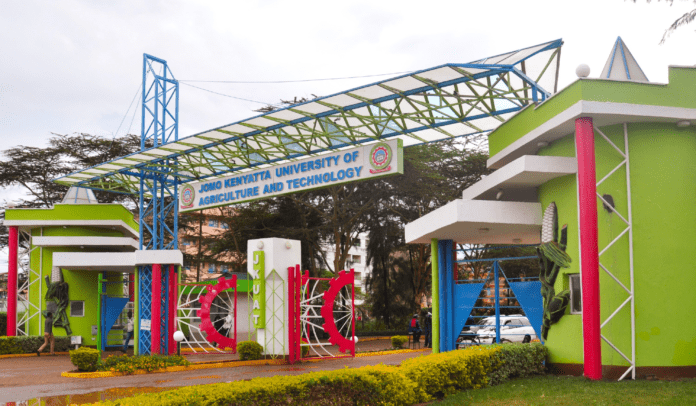
Jomo Kenyatta University of Agriculture and Technology (JKUAT) Vice-Chancellor Victoria Ngumi faced tough scrutiny before the National Assembly on Wednesday over claims of financial mismanagement at the institution.
Members of Parliament questioned her leadership regarding irregular entertainment allowance disbursements, with some staff reportedly receiving as much as KSh 2 million each without the approval of the Salaries and Remuneration Commission (SRC).
Appearing before the National Assembly Committee on Public Investments, Governance, and Education, chaired by MP Jack Wamboka, Ngumi and the university’s finance team struggled to justify the payments. Lawmakers flagged multiple cases of financial mismanagement, expressing concern over the lack of authorization from SRC.
Defending the payments, Ngumi stated that the allowances were part of a negotiated agreement between the University Council and staff unions.
“Entertainment allowance at the university is a negotiated item between the University Council and the unions. It is not everybody who gets it; those who are in the CBA get it, and it can be up to the tune of KSh 2 million,” she explained.
However, when pressed on whether the payments had been sanctioned by the relevant authorities, the Chief Finance Officer admitted they had not received official approval.
The revelation prompted further scrutiny, with lawmakers questioning why the university had proceeded with the payments without proper authorization. Frustrated by the lack of compliance, the committee recommended the immediate removal of JKUAT’s Chief Finance Officer and Head of Procurement, holding them accountable for mismanagement of public funds.
“This is gross and quite unprecedented. We find the two not fit to hold public office, and we will be moving to seek approval from the floor of the House. Once that happens, we do not think they will have any space,” Wamboka stated.
Beyond concerns over financial mismanagement, MPs urged JKUAT to explore sustainable ways to generate revenue. Lawmakers recommended leveraging the institution’s technological expertise, commercializing research, and utilizing its vast assets—valued at approximately KSh 25 billion—to boost financial stability.
“JKUAT needs to harness its technological capabilities to increase revenue,” said MP Bisau Kaikai.
Another MP, Francis Sigei, suggested utilizing university-owned land for agricultural ventures, such as crop farming and livestock rearing. He also proposed leasing part of the land under Public-Private Partnerships (PPPs) to enhance financial sustainability.
The matter is expected to be revisited in Parliament, as lawmakers push for greater accountability in public universities.




![SHA Suspends Dozens of Health Facilities Over Alleged Fraud [LIST]](https://citymirror.ke/wp-content/uploads/2024/12/image-14-218x150.png)

